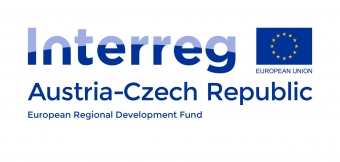Misson of the NABIAM project
Research network advances medical technology
Project NABIAM networks cooperation partners from Upper Austria and the Czech Republic for innovations
Plastic and medical technology are among the strengths of Upper Austria and South Bohemia. In both regions there are experts in research, business and start-ups in the areas of nanotechnology, biosensors and additive manufacturing. Together they could bring innovations to the market in medical technology. However, the networking and cooperative power can be expanded, since the actors know too little about the core competences available in the regions. The existing know-how is not barrier-free and particularly innovative start-ups lack access to high-tech production and research equipment. This is exactly where the NABIAM project wants to start and network potential cooperation partners for cross-technology joint projects with a focus on medical technology applications.
New innovation network
NABIAM stands for nanotechnologies, biosensors and additive manufacturing. The Steyr innovation and research company PROFACTOR GmbH had the idea for the project. “We have excellent researchers and technologies of international standing both in Upper Austria and in South Bohemia. Due to the language barrier, we have hardly worked together so far. The NABIAM project will help us to use synergies to achieve greater effectiveness and visibility together, ”says Andreas Pichler, research and development manager at PROFACTOR.
Network of local businnes agency used
PROFACTOR approached the Upper Austria with the idea for an Austrian-Czech innovation and research network. Business agency Upper Austria. Project manager Ingrid Linhartova found the right Czech partner through the European Region Danube-Moldau network. The NABIAM project consortium was ultimately formed via this network. Project managers are PROFACTOR and Business Upper Austria with the plastics and medical technology cluster, research partner is the South Bohemian University of Budweis with the Institute for Applied Computer Science. "Companies in South Bohemia and Upper Austria often do not have the right instrument to find R&D partners," says Jakub Geyer, director of the institute. "This leads to slower development and innovation. Our project will facilitate the networking of organizations to promote modern technologies and innovative approaches. "
Innovation through cooperation
The aim of the project is to establish long-term relationships with relevant players from research, development and business in Upper Austria and South Bohemia in the fields of polymer electronics and medical technology, with a focus on the topics of biosensors, nanotechnology and additive manufacturing (3D printing). This innovation network will strengthen the competitiveness and innovative strength of the two project regions. “Coupled with a competence mapping for polymer electronics and medical technology, project consortia on specific topics should quickly form in the future. True to our motto: innovation through cooperation, ”says Wolfgang Bohmayr, manager of the plastics cluster. Funding is provided through regional, national and European funding programs. NABIAM received funding from the EU program INTERREG Austria - Czech Republic and the fund for regional development of the European Union in the amount of 85 percent of the project volume of 216,000 euros.
Innovative methods
NABIAM is now collecting the research priorities and research needs in the two regions and visualizing the competencies and research infrastructure in a technology roadmap and a competence map. Then an open innovation process is developed. NABIAM uses innovative concepts such as design thinking or matchmaking events based on the concept of an innovation hub. Companies, universities, research institutions and clusters are to be given easier access to the latest research results, specialist knowledge and technologies. “Medical technology is a key competence of both Upper Austria and South Bohemia. With NABIAM we can advance research and development in the industry and thus come up with innovative, individual solutions for patients, ”emphasizes Nora Mack, manager of the medical technology cluster.
 Co-financed by the European Regional Development Fund
Co-financed by the European Regional Development Fund